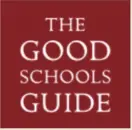
HOW TO APPLY TO A UK INDEPENDENT PRIVATE SCHOOL
Navigating the UK independent school admissions process can feel complex at first. Once you break it down into stages, it’s a clear and manageable journey with prospective families supported by friendly and knowledgeable admissions teams.
Apply to repton prep (AGE 3-13)
This guide walks you through each step, from understanding entry points to preparing for the exciting first day.
1. Understand Entry Points and School Types
Independent schools in the UK admit pupils at different ages depending on their structure and traditions. Common entry points include:
- 4+ (Reception) – the start of primary education.
- 7+ – entry into junior or prep school.
- 11+ – the first year of senior school in some areas.
- 13+ – a traditional entry point for many boarding schools, often following entrance exams.
- 16+ – entry into Sixth Form for A Levels or equivalent qualifications.
Prep schools prepare pupils for entry into senior schools, while senior schools typically cater for ages 11 or 13 through to 18. Repton Prep admits children from nursery through to Year 7, with the vast majority of children progressing to Repton School at 13+.
Further reading: ‘Is there a best age to start private school?’
2. Research and Shortlist Suitable Schools
Every independent school has its own atmosphere and ethos, academic and sporting provisions, and boarding or day options. When shortlisting, consider:
- Curriculum focus (A Levels, IB, GCSEs, etc.)
- Co-educational or single-sex environment
- Location and boarding flexibility
- Pastoral care and extra-curricular provision
- Academic and cultural ethos
School websites are your most useful starting points. Request prospectuses, review inspection reports, read policies, watch videos, and speak with admissions teams. Visiting in person (or virtually) will give you the best feel for a school’s atmosphere.
REPTON school INSPECTION REPORTS
“Finding the right fit is about more than academics — it’s about where your child will thrive socially, emotionally, and personally,” says the Independent Schools Council (ISC) in its Choosing a School guide (ISC, 2024).
3. Register Your Interest Early
Many schools require families to complete a registration form and pay a registration fee before a certain deadline. For the best private schools, early registration — sometimes years in advance — is essential, especially at key entry points such as 11+, 13+, or 16+.
4. Attend a School Visit or Open Day
Open Days, private tours, and taster events allow you and your child to see facilities, meet staff, and experience the day-to-day life of the school. This is also a great opportunity to ask questions about boarding life, curriculum, and pastoral care.
Most schools will hold Open Days in the autumn and spring terms whilst personal tours are available all year round and provide the opportunity to take a closer look at the school and spend more time with individual staff members.
5. Understand Entrance Assessments and Exams
Independent schools use different entrance tests depending on the year group:
- Common Entrance (13+) – a standardised exam set by the Independent Schools Examinations Board.
- ISEB Pre-Tests – computer-based tests assessing verbal, non-verbal, mathematical, and reasoning skills. According to the ISEB, these assessments are “designed to measure potential as well as attainment, ensuring that every child has the chance to demonstrate their abilities” (ISEB, 2024).
- School-specific assessments – prospective pupils at Repton take part in GL Assessment’s CAT4 tests which consider a pupil’s potential, skills and abilities.
Schools will also request reports and a reference from the child’s current school.
6. Prepare for Interviews
Interviews are common at all entry points. For younger pupils, these may be informal chats or school visits; for older applicants, they may involve discussions with senior staff members about academic interests, hobbies, and values. Schools look for curiosity, enthusiasm, and a readiness to contribute to community life - not just top grades.
7. Consider Scholarships and Bursaries
Scholarships recognise talent in areas such as academic ability, Sport, Music, Art & DT, and Drama. Scholarships at Repton are available at 13+ and 16+ and award up to the maximum value of 10% remission of the school fee.
Bursaries are means-tested and offer financial support for families who meet certain criteria. The ISC reports that one in three pupils at independent schools receive some form of financial assistance, making an independent education more accessible than many families realise (ISC Census, 2024).
8. Receive an Offer and Make Your Decision
Offers may be conditional (subject to achieving certain results) or unconditional.
An offer pack will usually include acceptance forms, deposit information, and joining instructions. Be mindful of acceptance deadlines, as places are often limited.
9. Prepare for the Transition
Once your child’s place is confirmed, the focus shifts to helping them settle in. Admissions departments often provide welcome packs that include all the information you will need before starting at a new school. At boarding schools, your Housemaster/mistress will likely contact you before term starts to introduce themselves and supply House-specific information. They will soon become your first port of call at school.
Questions About Applying to UK Independent Schools
-
Can I apply to more than one private school?
Yes – many families apply to multiple schools to keep options open.
-
What happens if my child doesn’t get in?
You can consider other schools with later deadlines or alternative entry points.
-
Is the process different for international students?
International applicants may take entrance assessments online and have interviews via video call. Visa and English language requirements may also apply.
READ OUR GUIDE IF YOU'RE APPLYING FROM ABROAD
-
Can you apply mid-year?
Some schools accept mid-year entrants if places are available.
A Structured Path to the Right School
Applying to a UK independent school is a journey with clear steps. By researching early, speaking with admissions teams and visiting schools, you can ensure a smooth process and the best possible match for your child’s needs.










